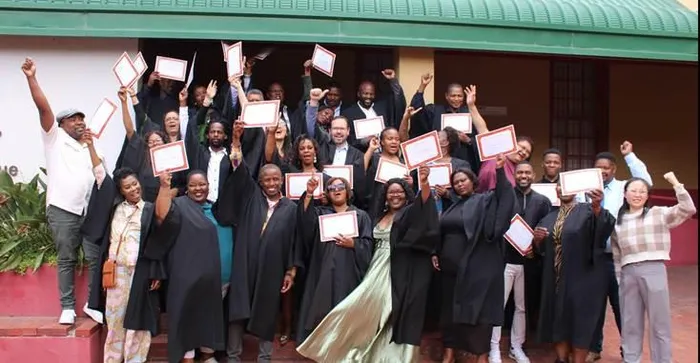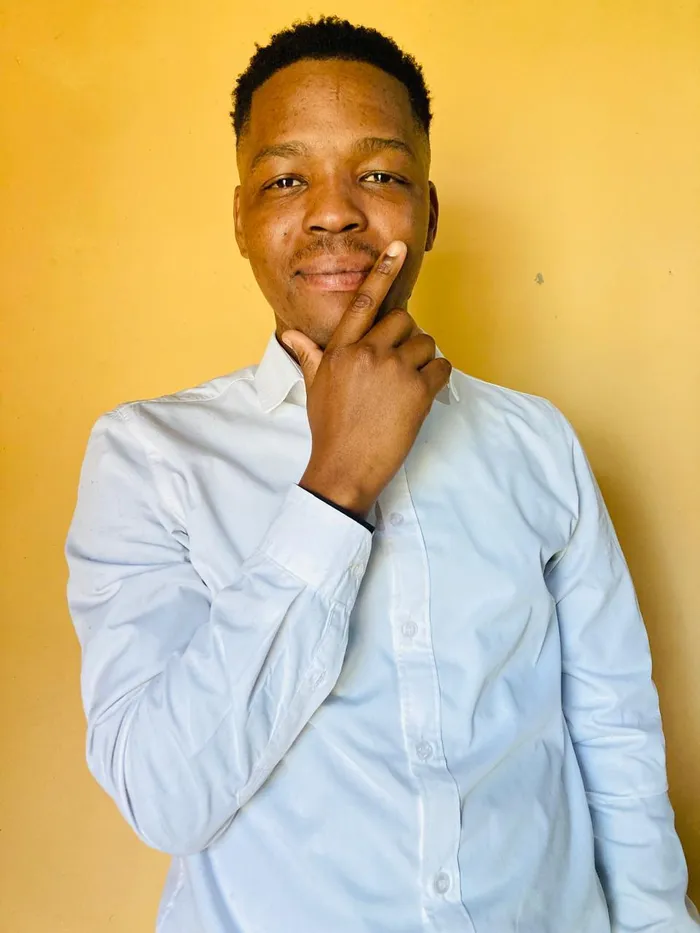Community activists in Cape Town graduate, enhancing skills for spatial justice

Seen here are Cape Town community activists and leaders who graduated from Development Action Group’s active citizens training course on Saturday, 18 October.
Image: Supplied
Thirty-year old Bulelani Ndzuzo from Keep Mbekweni Clean (KMC) in Paarl was among 28 community activists and leaders who graduated from Development Action Group’s active citizens training course on Saturday, 18 October.
The course strengthened the participants’ civic agency, community leadership skills, and their capacity to advocate effectively for the realisation of spatial justice in their neighbourhoods.
It also promoted democratic engagement, community-led development, and sustained local activism.
Participants were equipped with the knowledge, tools, and strategies needed to tackle local challenges, particularly in the sphere of housing and human settlements.
The participants and their families and community representatives gathered at Community House in Salt River for the graduation ceremony.
They represented organisations from areas, including Paarl, Kraaifontein, Bellville, Khayelitsha, Gugulethu, Philippi, Wynberg, Walmer Estate, Vrygrond, Muizenberg, and Parklands.
Mr Ndzuzo said while Mbekweni faces challenges like unemployment and illegal dumping, it is also full of heart and community spirit.
“That’s what inspired Keep Mbekweni Clean, a movement focused on environmental awareness, recycling, and civic action.
“Civic activism has helped us prove that real change starts with ordinary people taking ownership of their surroundings.
“Through our cleanups, recycling drives, and youth involvement, we’re restoring pride and unity in our community," he said.

Bulelani Ndzuzo,30, from Keep Mbekweni Clean (KMC) in Paarl was among 28 community activists and leaders who graduated from Development Action Group’s active citizens training course on Saturday, 18 October.
Image: Supplied
Mr Ndzuzo said he has been able to implement positive changes in his organisation since attending the DAG training course.
“My organisation now has a defined theory of change and can use resources effectively. We are also more equipped to conduct capacity-building work within our community.
"More significantly, our work now has a greater reach and recognition. We have been nominated for the Drakenstein Business Chamber’s “Best Community Project” Award,” Mr Ndzuzo said.
Established in 1986, DAG has a long-standing commitment to advancing spatial justice and inclusive urban development in Cape Town.
The organisation continues to support community-driven change and strengthen the voices of those often left out of formal planning processes through initiatives such as its active citizenship training course.
Since the inception of the course in 2017, it has trained more than 192 civil society activists and community leaders from over 100 organisations.
“We believe that lasting change must come from within communities. The graduation of these active citizens is a testament to the power of collective action and the potential of grassroots leadership,” said DAG project coordinator, Akhona Siswana.
Addressing participants at the graduation, DAG programme manager Crystal West said: “You have learned that citizenship is not a noun – it’s a verb. It’s not something you have; it’s something you do.”
Nompumelelo Mpotye, 52, from Love & Peace in Kraaifontein said the lack of access to jobs and housing is a huge challenge in her community, especially for older residents.
Ms Mpotye said the training programme has taught her vital communication skills to help the community navigate through these challenges and conflicts.
“I now know how to communicate with people when there is conflict, and am connected with other community leaders navigating similar challenges.
“I have seen a personal transformation in myself from operating from fear to operating with courage,” she said.
Dieudonne Elohym da Costa from the Young Urbanists organisation in Parklands grew up in Luanda, Angola, where he worked in the creative industry as an events planner and later in community development through arts education for youth.
He moved to Cape Town in 2020 to continue his studies in architecture and subsequently joined Young Urbanists.
The organisation focuses on reversing apartheid spatial planning by advocating for land and housing reforms, safe and convenient active mobility, and better public spaces.
Mr Da Costa said attending the DAG training course has changed the way he approaches new projects.
“I will now consider my positioning, what my organisation can contribute, what my community truly needs, and how I can leverage institutional relationships to advance the cause,” he said.
Mr Da Costa said he has since formed stronger networks with other stakeholders, which deepened his understanding of the challenges and aspirations of people in his community.
The training has also shifted his mindset regarding supporting organisations in his home country, he said.
“I realised that with the knowledge and resources I have, I should help them build capacity; share the tools I learnt, and promote power and active citizenship there.
“The rich course content and practical tools we learnt have helped me to network very strategically, understand who the key role players are in the urban development ecosystem, how I can engage with them, and what contributions I can make,” Mr Da Costa added.
Malcolm Parker from the Waka Moso organisation in Vrygrond said the course has changed the way he approaches impact development work in his community, which is riddled with gang conflict and broken relationships.
“I came into this course with a passion for affordable housing but without a clear understanding or idea of how to make an impact within the context of my community, city and my daily work.
“The discovery of approaches such as asset-based community development, enumerations and social audits has allowed me to discover my path to make a contribution,” Mr Parker said.